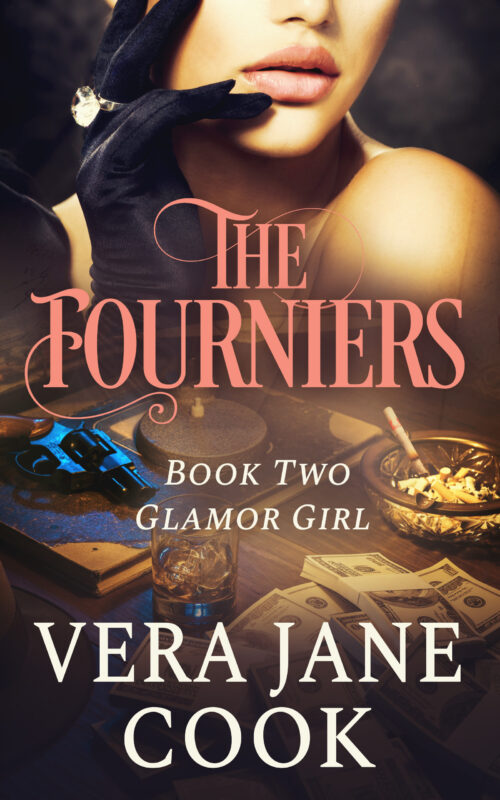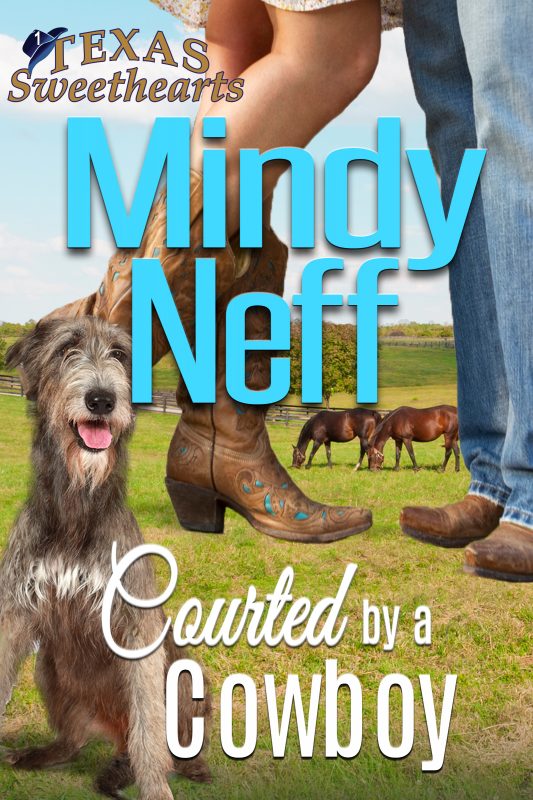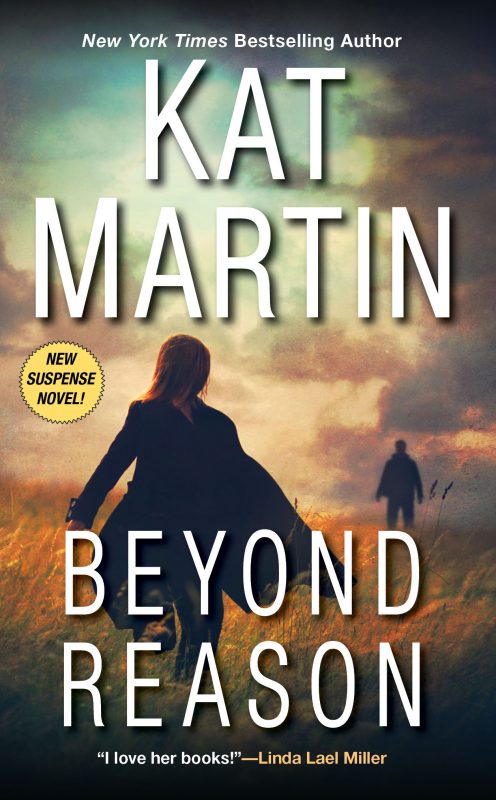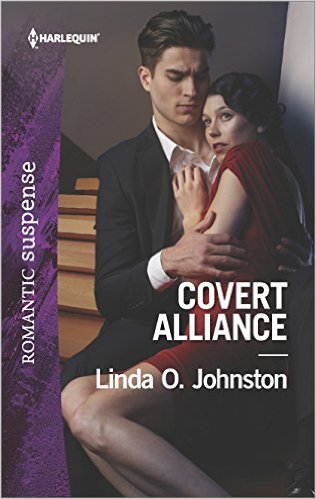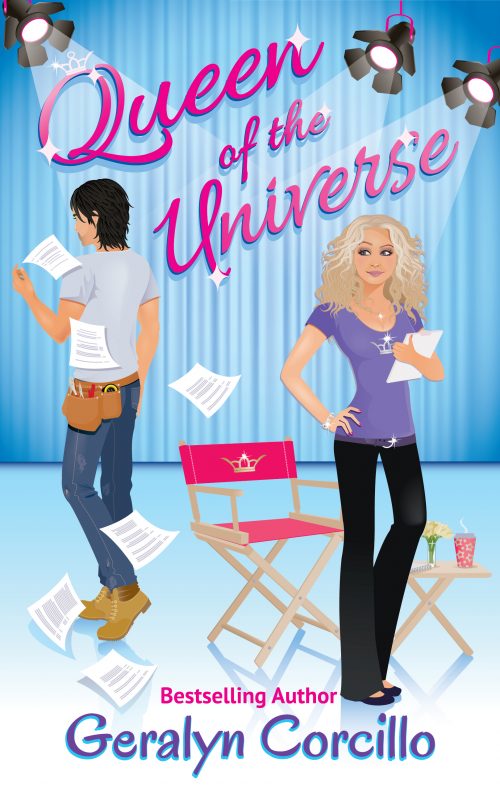Dear Extra Squeeze, Do You Have Audio Book Tips?
January 31, 2021 by The Extra Squeeze in category The Extra Squeeze by The Extra Squeeze Team, Writing tagged as audio books, H.O. Charles, Jenny Jensen, Rebecca Forster., Robin Blakely, The Extra Squeeze Team
Dear Extra Squeeze Team, I am interested in audio books, but I do not know how to get started in that arena…what are your tips?
Robin Blakely
PR/Business Development coach for writers and artists; CEO, Creative Center of America; member, Forbes Coaches Council.
The most important thing is to evaluate and prepare to articulate what you want. Listen to audio books in the genre of your work. Find the best ones that resonate with you. Note who the voice talent is and what you like about their performances. Then, step back and listen to the best audio books in other genres. Sometimes there is a huge difference between what is good in one genre and what is good in another genre. Noticing what you like and don’t like becomes more apparent through comparisons. Researching what you like and why will strengthen your vision for the end product. If you know what you really want and can express it, you will be able to find the talent you want in the audio arena.

Jenny Jensen
Developmental editor who has worked for twenty plus years with new and established authors of both fiction and non-fiction, traditional and indie.
Not sure how much help I can offer as I know nothing about distributing audio books, but I can say that the place to begin is with the voice talent. I used to produce radio spots and one had to keep a book of voice talent and jump through audition hoops to find the voice that best fit the ad’s product and audience. It’s so much easier today.
There are hundreds of really fine voice actors on the internet and most of them have the equipment needed at their fingertips. The actor’s websites have links to examples of their work so all you have to do is listen and consider if that voice has the right intonation, quality, clarity and personality to be a good narrator for your particular story. That’s a pretty subjective decision, so no tips on that.
I do suggest, however, that you test enough of the actor’s handling of dialog to know if it will work. Do you like the way she handles a man’s voice? How does he handle female voices? Children? Old people? Surprise, Anger? Most actors, once contacted, will audition a passage from your work. Then be aware of how the actor handles the issue of rights.

Rebecca Forster
USA Today Bestselling author of 35 books, including the Witness series and the new Finn O’Brien series.
I’m the wrong person to ask about audio books. I am not an ‘audio’ reader and I proved it when a producer bought my series. I was asked to choose a narrator, and I did not choose well. I will eagerly read my colleagues suggestions and we’ll learn together.
H.O. Charles
Cover designer and author of the fantasy series, The Fireblade Array
I’ve yet to record mine, despite years of working on radio programs and in audio production! From a production perspective, you need a room with dampened sound (soft furnishings to absorb echo–think of a studio with egg cartons and foam on the walls). You need a good microphone and a lot of disk space. There’s probably a way of recording using a mobile phone, these days (I’m a bit out of date!), as their microphones are improving all the time.
Avoid mic pops – this is where your Ps and Bs thump the mic as you spit at it. Make your editing easier by enunciating clearly and repeating a whole line when you make a mistake. Keep your background noise (kicking the desk, pets, traffic…) to the absolute minimum. For editing, Adobe Audition has long been the best tool, but it requires some getting-used-to for those just learning. Audacity is free and much simpler for the newbie.
Practice your acting skills. There’s nothing more boring than a reader going through an entire novel in monotone. Listeners latch onto variation in pitch and tone, and emotion. You may feel ridiculous doing it, but it’ll sound much better in the final edit.

Ever wonder what industry professionals think about the issues that can really impact our careers? Each month The Extra Squeeze features a fresh topic related to books and publishing.
Amazon mover and shaker Rebecca Forster and her handpicked team of book professionals offer frank responses from the POV of each of their specialties — Writing, Editing, PR/Biz Development, and Cover Design.
If you have a question for The Extra Squeeze Team, use our handy dandy contact form.
Dear Extra Squeeze Team, Is My Blurb Too Long . . . Help?
December 31, 2020 by The Extra Squeeze in category The Extra Squeeze by The Extra Squeeze Team tagged as back cover copy, book blurb, description, The Extra Squeeze Team, writing
Dear Extra Squeeze Team, I am afraid I am telling too much in my book description; it is really long, and I don’t know how to shut up…how do I make it concise?
Robin Blakely
PR/Business Development coach for writers and artists; CEO, Creative Center of America; member, Forbes Coaches Council.
If you think you are telling too much, you probably are. Likely, you are caught up in the literal play-by-play of the work, rather than the essence of the story that makes the reader want to read. One way to make the description shorter and more interesting is to step away from the task completely for a bit. Ask readers of the manuscript to send you their descriptions. Acquire three or four descriptions and blend those descriptions. Try not to get too emotionally caught up in the story of the story. Remember: this is about coaxing readers to read, not writing a book report to prove you know what happened.
H.O. Charles
Cover designer and author of the fantasy series, The Fireblade Array
Start with the pieces you want to keep, so that it makes sense, and strip out everything else. Too much description? Too many adjectives? Look at bestseller summaries and take some inspiration from their structure. They will have had whole teams to work on theirs, so don’t worry if it takes you a while to get it right.

Jenny Jensen
Developmental editor who has worked for twenty plus years with new and established authors of both fiction and non-fiction, traditional and indie.
A good book description works more like a lure than a synopsis. Intricate descriptions of ‘what happens’ is too much tell, so don’t give away the story. Try dangling the promise of a great read by hitting the plot highlights as they happen on your dramatic arc — and then leave it dangling before you hit the denouement.
If you pare it down to just those points that support and move the plot — this could be characters, the problem, the compelling idea — and make the tone fit the story — eerie for horror, soft for romance, brittle for a thriller, punchy for humor — it makes the task more manageable.
A book description is not the condensed version; it’s an opportunity to tantalize and intrigue a reader with what makes your story irresistible.

Rebecca Forster
USA Today Bestselling author of 35 books, including the Witness series and the new Finn O’Brien series.
My gut is my favorite writing tool, too. Kudos on recognizing something is wrong. Regarding blurbs, I have taken a lesson from my friends who write scripts and I start with a logline. This is one sentence that lays out the hero, the goal, and the challenge the hero faces.
This is a story about a woman determined to save her family from the ravages of the Civil War no matter what the personal cost.
That is Gone with The Wind in one sentence. Once you have your log line, build on it. Use active words, dramatic words, and draw the reader into the story and stop before you give it away. This is the one piece of writing you should edit, and edit, and edit, and then edit one more time. Blurb writing is a craft to be honed.

Ever wonder what industry professionals think about the issues that can really impact our careers? Each month The Extra Squeeze features a fresh topic related to books and publishing.
Amazon mover and shaker Rebecca Forster and her handpicked team of book professionals offer frank responses from the POV of each of their specialties — Writing, Editing, PR/Biz Development, and Cover Design.
If you have a question for The Extra Squeeze Team, use our handy dandy contact form.
Dear Extra Squeeze Team, I Have a Pandemic Story . . . Too Soon?
November 30, 2020 by The Extra Squeeze in category The Extra Squeeze by The Extra Squeeze Team tagged as covid plot, pandemic story, ripped from the headlines, story
Dear Extra Squeeze Team, I think I have a best-selling pandemic story on my hands! Is it ever too late or too soon to write about something like that?
Robin Blakely
PR/Business Development coach for writers and artists; CEO, Creative Center of America; member, Forbes Coaches Council.
If you have a best-selling story about any period of time, write it. The very best stories have a timeless essence that touches hearts and ignites imaginations, no matter when or where the stories are set. It is never too soon or too late to write a story that jars the soul. But, by the same token, don’t imagine that the pandemic theme is the thing that will cause readers to pick up the book.
A million pandemic-themed stories are being created right now; many not very good. The market always faces trends that cause certain subjects, themes, or genres to spike in popularity at certain times. If that is the wave you want to ride, get there early. But that wave may not be the one for you—you may not be done fast enough to be part of that perceived market interest.
If in doubt, go good. Good work weathers mass upticks in interest. Focus on the good work.
H.O. Charles
Cover designer and author of the fantasy series, The Fireblade Array
No! Think of all the war novels that are still being written, and all those written during the wars. Different, developing situations give rise to different and interesting outlooks.

Jenny Jensen
Developmental editor who has worked for twenty plus years with new and established authors of both fiction and non-fiction, traditional and indie.
Yea! I’ve been waiting for this. I think now is the perfect time to offer a good fictional Corvid plot. I see no reason why such a story would be “too soon” or “too late”. If the tale is well written, soundly plotted, has a great cast of characters and a riveting dramatic arc it will always be timely as a good book.
The pandemic is top of everyone’s mind right now. (How often has a single event held that much sway at once with the entire human species?) There is so much crazy mis-information blitzing around that a large number of us just ignore it all, take precautions and wait to hear about a vaccine. I’d welcome a good pandemic story. Fiction has always been the media where we can talk about anything. Go for it.

Rebecca Forster
USA Today Bestselling author of 35 books, including the Witness series and the new Finn O’Brien series.
I was recently interviewed and asked if I was going to address the pandemic. My answer was, ‘Yes if it works organically into my story’.
Will I make the pandemic the focus of a book? The answer is no. I very seldom write a ripped-from-the-headlines book because headlines change faster than you can blink these days.
I do write ripped-from-the-inside-pages books because that’s where I find small stories, about real people and personal tragedy and triumph. For me, it’s always about the characters.
Every writer is different, though. If this book is eating at you, write it, own it, and market it. It might be just be the blockbuster you feel it is.
Good luck.

Ever wonder what industry professionals think about the issues that can really impact our careers? Each month The Extra Squeeze features a fresh topic related to books and publishing.
Amazon mover and shaker Rebecca Forster and her handpicked team of book professionals offer frank responses from the POV of each of their specialties — Writing, Editing, PR/Biz Development, and Cover Design.
If you have a question for The Extra Squeeze Team, use our handy dandy contact form.
Dear Extra Squeeze Team, Should I Quit Writing?
October 31, 2020 by The Extra Squeeze in category The Extra Squeeze by The Extra Squeeze Team tagged as Dear Extra Squeeze Team, inspiration, Should I Quit Writing, The Extra Squeeze Team, Writing Advice, writing help
Dear Extra Squeeze Team,
It feels like the entire world is telling me to quit writing…is this normal and what should I do? Should I quit writing?

Rebecca Forster
USA Today Bestselling author of 35 books, including the Witness series and the new Finn O’Brien series.
I am tempted to sit down beside you and just cry.
Instead, I’m going to tell you to buck up, bucko!
I know, I hated hearing that too, but we’ve all been there, done that. Instead of being the company misery loves, I’ll offer this. I sold my first three books and then spent years trying to sell another one. When I finally figured out what was wrong, there was no stopping me. I also had a good friend who was rejected 40 times, and when she finally sold a book her career took off. Every writer’s struggle is different and how we deal with it is too.
In my case, I defaulted to my comfort zone — analysis. I certainly could put a sentence together, but when I reread my rejection letters, I realized my storytelling was lacking. Instead of flying by the seat of my pants as I had early on, I now sought out ways to educate myself about structure. I also realized I was afraid to delve into my characters. They were cookie cutter, and I needed to be more invested in their lives. I asked myself if I was writing in the correct genre. When the answer was no, and I switched genres my career turned around. Finally, I asked myself if I understood the publishing businesses well enough to navigate it.
The bottom line was this I needed to learn a craft. Writing isn’t just something that happens magically. You need to stretch your creative and business muscles, learn the game, and then make it your own. Information is out there. Embrace it, understand it, and use it. If you’re having trouble being objective about your own work, seek out an editor. If you can’t afford an editor, find a mentor. If you can’t find a mentor, find a friend who loves to read and who is very honest to give you feedback. If the world is telling you to quit, figure out why, and then show the world they were wrong.

Jenny Jensen
Developmental editor who has worked for twenty plus years with new and established authors of both fiction and non-fiction, traditional and indie.
Do your level best to ignore those negative feelings —there’s probably few writers who haven’t felt doubt. Keep writing. Everyday. Storytelling is a craft and like every craft it takes practice to perfect. Rejection is a part of that process and is often the most instructive tool a writer can receive: why was the work rejected? Work on strengthening the weaknesses that caused the rejection. Same with healthy criticism.
Simple is not always easy, but it really is simple. If you want to write, then there is nothing that will stop you. Just keep on writing and improving, writing and improving even more.
H.O. Charles
Cover designer and author of the fantasy series, The Fireblade Array
Yes, it’s normal.
Commercially speaking, it’s very hard to know when to listen to the world and when to defy it. Sometimes great works are never appreciated until decades later.
Outside of money, if you feel you have to write, then it doesn’t matter what the world thinks. Most writers find their fingers tapping away at something regardless of negative reviews, poor sales etc. It has to be a hobby you enjoy before anything else.
Robin Blakely
PR/Business Development coach for writers and artists; CEO, Creative Center of America; member, Forbes Coaches Council.
Welcome to the world of writing.
It is completely normal to feel, from time to time, that this world has conspired against you and that it is secretly or not-so-secretly telling you to quit writing. This quitting option seems to present itself at critical moments repeatedly while creative people are wandering up the road less traveled.
When you feel this kind of despair, you have two simple choices: quit or don’t quit. If you decide to quit, perhaps you can imagine that the quitting is just for a while, not forever. Sometimes quitting for a period of time can be a pretty good choice if you are exhausted and burned out.
But, I would hope that you might choose to not quit. If you choose to carry on instead of quitting, perhaps you could take this juncture to step back for a moment and evaluate what is happening to make you feel this way.
Perhaps you have surrounded yourself with naysayers. If so, get away from them. Perhaps you have driven yourself to exhaustion with self-demands of perfection or self-expectations of production. If so, get some help from someone who can objectively reset those goalposts with you.
Everyone goes through stages and phases of battle weariness when fighting the unknown. Writers face a lot of unknowns and the most intense moments typically happen right before a breakthrough.

Ever wonder what industry professionals think about the issues that can really impact our careers? Each month The Extra Squeeze features a fresh topic related to books and publishing.
Amazon mover and shaker Rebecca Forster and her handpicked team of book professionals offer frank responses from the POV of each of their specialties — Writing, Editing, PR/Biz Development, and Cover Design.
If you have a question for The Extra Squeeze Team, use our handy dandy contact form.
Dear Extra Squeeze Team, Can I Keep My Cover, Please?
September 30, 2020 by The Extra Squeeze in category The Extra Squeeze by The Extra Squeeze Team tagged as indie authors, old book, re-releasing books
Dear Extra Squeeze Team, I am an indie writer with an old book that I want to re-release…should I try to keep the cover the same as the original edition?
Robin Blakely
PR/Business Development coach for writers and artists; CEO, Creative Center of America; member, Forbes Coaches Council.
Probably not, unless the book is an iconic bestseller with the kind of visual recognition status that makes it identifiable by sight to the masses. In most cases, an old book will need a fresh opportunity in the modern marketplace. That fresh opportunity will likely mean that you need to get a new cover and a new author photo. Give the work a fresh new start. That new start will also likely mean brushing up the description of the book with an eye toward why it is important for today’s readers. It could also include some current endorsements from people who resonate with the readers of the current year. That is not to say bury or drop old endorsements but be aware that younger readers may not know who past icons are, especially if those icons are no longer active or no longer living. Leverage everything you have available to make the cover stand out on digital platforms. Look at the product with new eyes and new expectations.

Rebecca Forster
USA Today Bestselling author of 35 books, including the Witness series and the new Finn O’Brien series.
I love makeovers! Not only do I have forty books on my backlist, and all have had cover makeovers, but the author has too. Nope, I didn’t go under the knife, I just changed and grew with the times. Fashions change, the way books are viewed has changed, delivery methods have changed. Today your covers need to pop as thumbnails online in an ever-more crowded field, so give your work every advantage. Embrace marketplace changes. Have fun. Enjoy the process. If there are elements of the original covers you love keep them, but make them fresh (are you even sure you have the rights to the artwork?) I say go for it. I say go for it!

Jenny Jensen
Developmental editor who has worked for twenty plus years with new and established authors of both fiction and non-fiction, traditional and indie.
I’m going to assume (yikes! Danger Will Rogers) that by “old” you mean the book was first released at least 3 years ago. Yes, refresh, re-boot, revise, re-work that cover.
We’ve all been told not to judge a book by its cover. I think that is a cosmic fallacy right up there with ‘one size fits all’. An enticing cover draws me in — at least enough to read the blurb. With an Indie release a good cover says something about the author. It speaks of quality and suggests a promising story. In fact, I bought my two most favorite novels on the basis of the cover.
Take a good look at the covers of books in your genre and the ratings each has received. That will give you an idea of what sort of imagery is selling. Is it a literal graphic depiction or more impressionistic? Consider what is selling. Go from there.
If the original release was highly successful and you feel the cover was a part of that, you could simply update the original look. Covers are like fashion — ever changing and then rolling around to a previous era, only with a ‘modern’ sensibility. One has only to look at the original Agatha Christie covers and those on offer today to see that.
Give your cover design the attention it deserves
H.O. Charles
Cover designer and author of the fantasy series, The Fireblade Array
It depends on the rights and cover quality. If the publisher paid for the cover, then they likely own the rights. Sometimes the artist will withhold the right to re-sell certain designs or use them as they see fit. It really depends on the deal originally made. If the cover is very good, this is worth pursuing. If it’s even half-average, I’d plump for a new cover to be safe. Just so happens I know a designer…

Ever wonder what industry professionals think about the issues that can really impact our careers? Each month The Extra Squeeze features a fresh topic related to books and publishing.
Amazon mover and shaker Rebecca Forster and her handpicked team of book professionals offer frank responses from the POV of each of their specialties — Writing, Editing, PR/Biz Development, and Cover Design.
Affiliate Links
A Slice of Orange is an affiliate with some of the booksellers listed on this website, including Barnes & Nobel, Books A Million, iBooks, Kobo, and Smashwords. This means A Slice of Orange may earn a small advertising fee from sales made through the links used on this website. There are reminders of these affiliate links on the pages for individual books.
Search A Slice of Orange
Find a Column
Archives
Featured Books
BEYOND REASON
She’s determined to be successful—no matter who tries to stop her.
More info →COVERT ALLIANCE
Passion flares between a mysterious woman and a covert investigator who knows her secret…
More info →QUEEN OF THE UNIVERSE
Can a charismatic TV writer convince her brooding handyman to star in her show in time to save her career?
More info →Newsletter
Contributing Authors
Search A Slice of Orange
Find a Column
Archives
Authors in the Bookstore
- A. E. Decker
- A. J. Scudiere
- A.J. Sidransky
- Abby Collette
- Alanna Lucus
- Albert Marrin
- Alice Duncan
- Alina K. Field
- Alison Green Myers
- Andi Lawrencovna
- Andrew C Raiford
- Angela Pryce
- Aviva Vaughn
- Barbara Ankrum
- Bethlehem Writers Group, LLC
- Carol L. Wright
- Celeste Barclay
- Christina Alexandra
- Christopher D. Ochs
- Claire Davon
- Claire Naden
- Courtnee Turner Hoyle
- Courtney Annicchiarico
- D. Lieber
- Daniel V. Meier Jr.
- Debra Dixon
- Debra H. Goldstein
- Debra Holland
- Dee Ann Palmer
- Denise M. Colby
- Diane Benefiel
- Diane Sismour
- Dianna Sinovic
- DT Krippene
- E.B. Dawson
- Emilie Dallaire
- Emily Brightwell
- Emily PW Murphy
- Fae Rowen
- Faith L. Justice
- Frances Amati
- Geralyn Corcillo
- Glynnis Campbell
- Greg Jolley
- H. O. Charles
- Jaclyn Roché
- Jacqueline Diamond
- Janet Lynn and Will Zeilinger
- Jeff Baird
- Jenna Barwin
- Jenne Kern
- Jennifer D. Bokal
- Jennifer Lyon
- Jerome W. McFadden
- Jill Piscitello
- Jina Bacarr
- Jo A. Hiestand
- Jodi Bogert
- Jolina Petersheim
- Jonathan Maberry
- Joy Allyson
- Judy Duarte
- Justin Murphy
- Justine Davis
- Kat Martin
- Kidd Wadsworth
- Kitty Bucholtz
- Kristy Tate
- Larry Deibert
- Larry Hamilton
- Laura Drake
- Laurie Stevens
- Leslie Knowles
- Li-Ying Lundquist
- Linda Carroll-Bradd
- Linda Lappin
- Linda McLaughlin
- Linda O. Johnston
- Lisa Preston
- Lolo Paige
- Loran Holt
- Lyssa Kay Adams
- Madeline Ash
- Margarita Engle
- Marguerite Quantaine
- Marianne H. Donley
- Mary Castillo
- Maureen Klovers
- Megan Haskell
- Melanie Waterbury
- Melissa Chambers
- Melodie Winawer
- Meriam Wilhelm
- Mikel J. Wilson
- Mindy Neff
- Monica McCabe
- Nancy Brashear
- Neetu Malik
- Nikki Prince
- Once Upon Anthologies
- Paula Gail Benson
- Penny Reid
- Peter Barbour
- Priscilla Oliveras
- R. H. Kohno
- Rachel Hailey
- Ralph Hieb
- Ramcy Diek
- Ransom Stephens
- Rebecca Forster
- Renae Wrich
- Roxy Matthews
- Ryder Hunte Clancy
- Sally Paradysz
- Simone de Muñoz
- Sophie Barnes
- Susan Squires
- T. D. Fox
- Tara C. Allred
- Tara Lain
- Tari Lynn Jewett
- Terri Osburn
- Tracy Reed
- Vera Jane Cook
- Vicki Crum
- Writing Something Romantic
Affiliate Links
A Slice of Orange is an affiliate with some of the booksellers listed on this website, including Barnes & Nobel, Books A Million, iBooks, Kobo, and Smashwords. This means A Slice of Orange may earn a small advertising fee from sales made through the links used on this website. There are reminders of these affiliate links on the pages for individual books.

